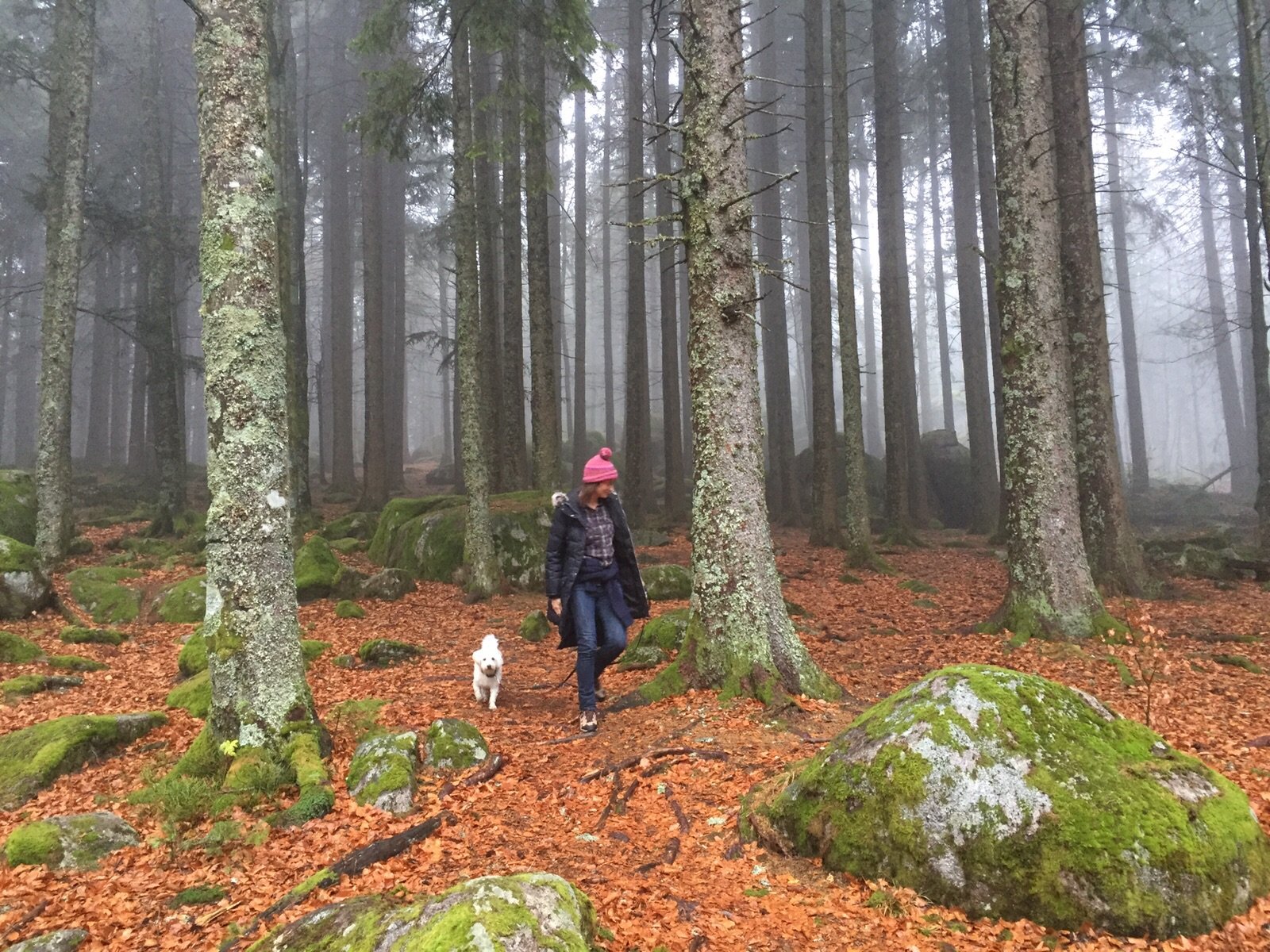
Unorthodox Paths
Ramblings while trying to accept my trajectory
One night over a drink while discussing the success of my book Thinking Small, a fellow philosopher suddenly slipped out the following— Oh Andrea, I’m so surprised it went like this.
I understood the sentiment. I imagined other friends in our little group were feeling it when they looked at me. I’d set out to write a philosophical text about ecological dialectics and ended up writing a book about history and cars (the long, strange trip of the Volkswagen Beetle). It was hard to see how it all fit, but I had no regrets.
I’d fallen in love with the Bug and its story, unabashedly. Writing that book, and working with the people I collaborated with on it, was a true gift. It was also a path I had not expected to take. After co-creating and sustaining an interdisciplinary journal, I had visions of Camus, de Beauvoir and Arendt. Now I’d been named a cultural historian and automotive journalist— wonderful titles, but ones that caught me off guard.
All those days scribbling out stories while working in independent bookshops in Seattle and NYC; all those nights drinking wine in European cafes while writing, studying, and discussing philosophy—it was hard to see how writing about transportation fit to my life. My friend’s “surprise” was a way of acknowledging my discomfort. Even before the book was published, I’d packed up for Mongolia and signed on to work for the Peace Corps, restless to push further at expectations and find another way of seeing the world.
After the Peace Corps and some years wandering, completing a project for the U.S. Embassy, working for artists and collectors, and continuing as an editor, writer and translator—the connections between all these divergent desires slowly began to become clear. Through all my exploration, a few themes and questions kept recurring:
How do we find our way? And how does our way find us?
In my early university years, I’d written a thesis (Hegel, Rorty, Bohm) towards a dynamical definition of mind. In it, I’d explored mind as an active process. I began to imagine cognition as though it were another form of navigation. Because of the intimacy of thinking and remembering, it can often feel as if we are shut off from the very same relationships and ecologies that sustain us and that create what we come to know as mind. But there is a way to shift perspective and also see that same mind as ecological. In what ways do sensory motifs and thought patterns thread through our ecology and link us with all we encounter as we navigate our life? And how does our awareness of those paths and patterns lead to agency?
After settling in Berlin to supplement my philosophy degree with a degree in neuroscience, I started studying with labs that focused on memory, navigation, and ways of defining mind and self. I tried to understand how the nervous system processes and uses what we measure as time and space, or place—how the sensory relations of our lives come together as a common atmosphere. Exploring the continuity of memory, thinking and action, my forthcoming work is connected by the desire to understand the dynamic spatiotemporal connections between ecology and mind, and to do so beyond traditional binaries of physical and mental. Looking back now, I can see that my first book was moving towards something similar—the history of transportation is about new ways of experiencing space and time, both socially and technologically.
The New York Times recently asked the legendary comedian and creator Jerry Seinfeld to name his literary guilty pleasure, and he named my book Thinking Small. This was a great gift, for more reasons than one, as he starts by saying: “I don’t feel guilt to begin with.” The way he turns the question on its head parallels the movement of my own evolution these days as I’ve accepted the strange path of my life, and no longer much care if what I do satisfies niche-based proprieties. This path may not fit expectations of normalcy, but what path does?
My former discomfort about being part of so many seemingly contradictory worlds no longer makes much sense. Rather I understand that the more perspective we can handle, the more the contradictions become compliments. The strange topography of my life is authentic, evidence of my hunger to explore space, to cover as much emotional and mental terrain as possible, to widen into other points of view and experiment with ways of expanding “I” through the “we” of ecology; asking what it means to be here, and how we come to know that we are.